On The Ridge with Joe Judd: Don’t feed those turkeys

| Published: 04-10-2024 3:39 PM |
MassWildlife reminds us that April through May is the height of the breeding season for wild turkeys and, as a result, turkey activity is increasing daily across the Commonwealth.
In some areas turkeys may even act aggressively by pecking, following, or exhibiting other intimidating behavior toward people. Males will begin to puff out their feathers, fan their tails, and strut while gobbling and, at times, purring aggressively.
This behavior is common during this time of year, when turkeys are establishing social dominance or status within the flock. Each bird is dominant over birds of lesser social status and, again, at times, wild turkeys may attempt to dominate or attack people that they view as subordinates, especially in inner city settings where feeding these birds can become a daily routine. And as these wild turkey versus human interactions continues to grow, MassWildlife urges the public to never feed wild turkeys, as the chances of aggressive behavior toward people becomes very real, and occurs when turkeys become overly comfortable in the presence of humans — usually over several months or even years, in areas where turkeys are fed. Never intentionally leave feed out food like bird seed or corn as an attempt at feeding wild turkeys for viewing.
Avoid using bird feeders at this time of the year as not only are black bears streaming out of their dens right now, but fallen bird seed will attract wild turkeys and other wild animals which can ultimately lead to negative interactions with wildlife.
“The most effective action people can take to prevent conflicts with turkeys is to stop feeding them,” says Dave Scarpitti, turkey biologist leader in the Bay State. “Providing food, whether intentional or not, can cause turkeys to act tame and may lead to bold or aggressive behavior, especially in the breeding season. Once this behavior is established, it can be very difficult to change.”
So, what should we do to protect ourselves from these vicious marauders?
During this time of year, people are encouraged to disrupt or scare bold turkeys away from your area with loud noises or water sprayed from a hose. A leashed dog may also be an effective deterrent. Mylar tape, balloons, or pinwheels can be used in and around your property as a deterrent to turkeys. But be warned, these techniques may not be as successful in areas where turkeys have become highly habituated to humans over months or years. The best bet is to simply let them wander in and wander out, while foraging for nature’s bounty on their own!
And while we’re talking about what not to do when dealing with springtime wildlife, did you know that every winter, MassWildlife biologists visit bear dens to collect valuable data? And while this vital data is critical to the ongoing study and research of the black bear population, the winter of 2024 limited snowfall and higher temperatures presented a new challenge for this decades-long research project. That’s right!
Article continues after...
Yesterday's Most Read Articles
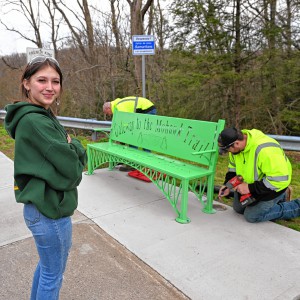 Franklin Tech student welds artistic bench for French King Bridge
Franklin Tech student welds artistic bench for French King Bridge
 On The Ridge with Joe Judd: What time should you turkey hunt?
On The Ridge with Joe Judd: What time should you turkey hunt?
 State records show Northfield EMS chief’s paramedic license suspended over failure to transport infant
State records show Northfield EMS chief’s paramedic license suspended over failure to transport infant
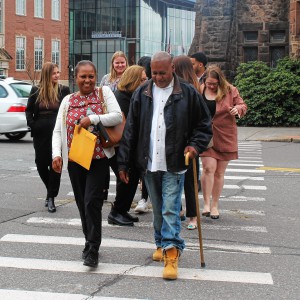 Former Greenfield man granted new trial after 1995 murder conviction, walks free
Former Greenfield man granted new trial after 1995 murder conviction, walks free
 Police report details grisly crime scene in Greenfield
Police report details grisly crime scene in Greenfield
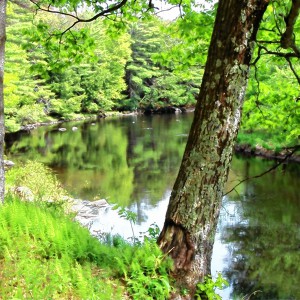 Formed 25,000 years ago, Millers River a historic ‘jewel’
Formed 25,000 years ago, Millers River a historic ‘jewel’
Massachusetts has one of the longest running black bear research projects in New England. For the last 40 years, biologists, graduate students, and researchers have been using radio tracking collars to collect essential information from female black bears, known as sows. And because of these studies, they now have 39 sows in Massachusetts fitted with radio tracking collars. These collars provide data about sow survival and reproduction rates, along with cub survival, which is so very critical to understanding our growing and expanding black bear population.
As part of this project, biologists visit the winter dens of these sows in hopes of finding them in their dens alone, with newborn cubs, or with their previous winter cubs, called yearlings. And once they locate the den, they can carefully immobilize the sow, so they can easily work with her while their team documents her body condition and weight. They also evaluate her collar for proper fit and function. And, if the female has newborn cubs, the cubs are counted, weighed, sexed, and kept warm until they can be returned to the den. All crucial data, as the black bear population in the Bay State continues to expand!
Finally, and on a completely different subject; Friday, April 19, the Western Mass. Chapter of the Ruffed Grouse Society will be holding its 17th Annual Conservation banquet at the Delaney House (3 Country Club Road in Holyoke). Social hours begin at 6 p.m. with dinner to follow at 7:30. All proceeds from this event will go toward the conservation of forest wildlife. Visit the RuffedGrouseSociety.org/Events, for more information, or contact Terry Smith (Terrance.Smith@comcast.net). This group is simply second to none when it comes to uniting conservationists to improve wildlife habitat and forest health for ruffed grouse, the American woodcock, and all wildlife in our New England forests and woodlands.
Joe Judd is a lifelong hunter and sportsman. He is an outdoor writer, seminar speaker, member of the New England Outdoor Writers Association, and a 2019 inductee into the N.E. Turkey Hunting Hall of Fame. Joe is also on the Quaker Boy Game Calls and Bass Pro Shops/Cabela’s Pro-Staff. He can be reached at jjontheridge@comcast.net

 High Schools: Sam Connors pitches Mahar past Smith Vocational, 1-0
High Schools: Sam Connors pitches Mahar past Smith Vocational, 1-0 Bulletin board: Greenfield Post 81 American Legion baseball tryouts begin this weekend
Bulletin board: Greenfield Post 81 American Legion baseball tryouts begin this weekend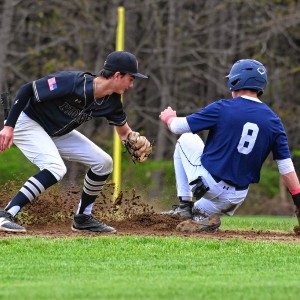 Baseball: Fifth inning rally propels Pioneer past Frontier (PHOTOS)
Baseball: Fifth inning rally propels Pioneer past Frontier (PHOTOS)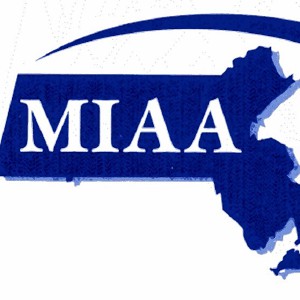 MIAA Power Rankings: Turners, Greenfield, Tech atop Div. 5 softball rankings
MIAA Power Rankings: Turners, Greenfield, Tech atop Div. 5 softball rankings
